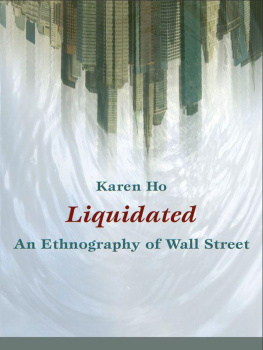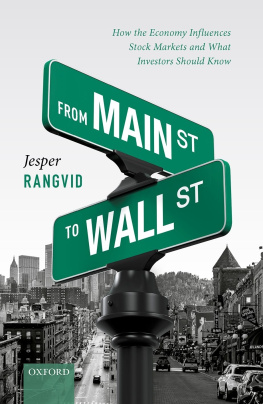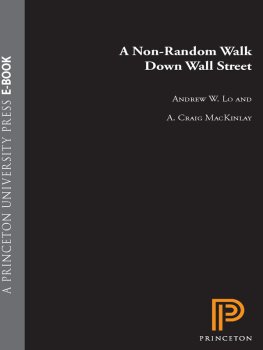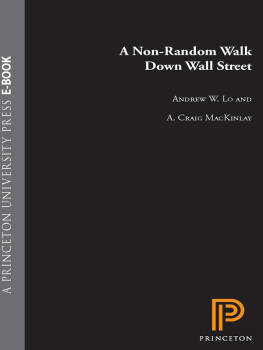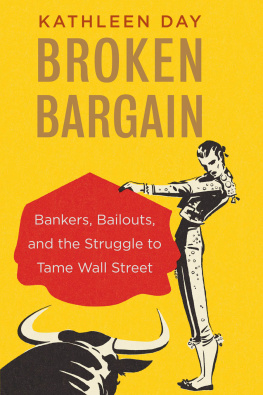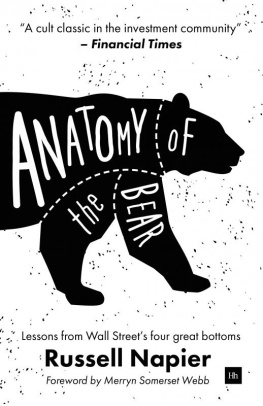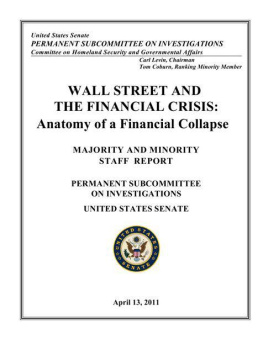Liquidated
A JOHN HOPE FRANKLIN CENTER BOOK

Liquidated
AN ETHNOGRAPHY OF WALL STREET
KAREN HO
Duke University PressDurham and London 2009
2009 Duke University Press
All rights reserved.
Printed in the United States of America on acidfree paper
Designed by C. H. Westmoreland
Typeset in Chaparral by Keystone Typesetting, Inc.
Library of Congress CataloginginPublication Data appear on the last printed page of this book.
CONTENTS
For my daughter and son,
Mira and August, in the hope that their generation will see greater socioeconomic equality.
Acknowledgments
An intellectual commitment to social and economic justice first galvanized this books journey. My search to understand the massive sea changes occurring in American business practices during the past three decades took me to the doorstep of Wall Street investment banks, an unconventional site for anthropological research. This project found a champion in my graduate advisor, Emily Martin, during a time when studying centers of power within the United States was still uncharted territory for most anthropologists. I still remember how, after I was offered a job at an investment bank, I called Emily in a panic as Wall Street demanded my immediate response, leaving me little time to think through how to negotiate a job with potential fieldwork. Her voice registered excitement and concern simultaneously, and she knew instinctively what I should do. Take it, she answered, sensing the opportunity and trusting my ethnographic and ethical sensibilities. Upon accepting the job, I took a leave of absence from graduate school and informed my coworkers of my future research intentions. Despite the tendency for disciplines to reproduce caution, Emily believed that ethnography was about challenging the status quo, literally putting one foot in front of the other. She taught me that passion and desire for social change are not irrational noise to the scholarly temper, but rather constitutive of pathbreaking research.
The job on Wall Street led me directly into the belly of the financial markets; taking this path made the book possible. I am thus also deeply indebted to the Management Consulting Group at Bankers Trust, where I worked as a business analyst before I began my fieldwork. I want to thank in particular Tony Brown, Richard Gibb, and Kimberly Thomas. Not only were they instrumental in hiring me, but they graciously introduced me to a number of influential contacts from which I built a strong web of informants. Of course, I owe an incredible thanks to all my Wall Street interviewees and informants who shared with me their experiences, introduced me to their networks and coworkers, and allowed me to understand aspects of their worldviews, values, and practices. I am grateful to a few Wall Street organizations, such as the Securities Industry Association and Jesse Jacksons Wall Street Project, who waived their hefty conference fees for a graduate student. I also want to thank especially Angel Lau, a Wall Street veteran, a dear friend, and a fountain of knowledge, who answered and clarified thousands of my clueless questions about finance.
Living in Brooklyn to conduct field research was an adventure of a lifetime. It was made possible in part by the good fortune of answering an advertisement for an apartment share in the Cobble Hill neighborhood, and my future roommate Regina Webers deciding that I, a complete stranger, was sane and potentially interesting. Little did she know that she would have to put up with endless boxes of books, fieldwork documents, and phone calls from informants for almost three years. For her patience and generosity, I am deeply grateful. I also want to thank old college friends living in New York City at the time, Beatrice Hastings-Spaine, Eunice Lee, and Irene Jeng, who brought endless laughter and much-needed respite from fieldwork.
Fieldwork turns into a successful dissertation only with the help of a supportive department and community. With a generous graduate fellowship, the Department of Anthropology at Princeton initiated me into the discipline. I offer my gratitude to Rena Lederman, Carol Greenhouse, Vincanne Adams, Jim Boon, Gananath and Ranjini Obeyesekere, Larry Rosen, Kay Warren, and especially Carolyn Rouse, for their counsel and academic stimulation. I am indebted to Carol Zanca, the department administrator, whose support and organizational expertise saw me to graduation. I also want to thank a broader Princeton intellectual and friendship community that sustained me throughout graduate school: Sylvie Bertrand, Miguel Centeno, Frances Chen, Jane Chen, Rebecca Clay, Heddye Ducree, Cheryl Hicks, Alison Lake, Lauren Leve, Jose Antonio Lucero, Wende Elizabeth Marshall, Tony Monsanto, Nell Painter, Samuel Roberts, and Ellen Thorington. The Center of Domestic and Comparative Policy Studies and the Fellows program at the Woodrow Wilson School at Princeton University as well as a National Science Foundation Cultural Anthropology Dissertation Improvement Grant provided the research funds necessary to complete fieldwork.
It was at the University of Minnesota that the dissertation was transformed into a book. I thank the faculty in the Department of Anthropology as a whole for their collegiality and support of my research; I am also deeply indebted to the administrative support and skill of Terri Valois, Amy Nordlander, and Susan Laska. My research assistants, Ava Rostampour and Jennifer Walker, were invaluable in helping me prepare this manuscript for production. They painstakingly organized files and searched for references; their dedication was exemplary. I have been very fortunate at Minnesota to have received a variety of grants that allowed this books completion: the Presidents Faculty Multicultural Research Award, the Faculty Summer Research Fellowship and McKnight Summer Fellowship, the Institute for Global Studies Intellectual Collective Grant, the College of Liberal Arts semester leave, and research grants from the Humanities Institute and the Asian American Studies Program. I especially want to thank the faculty residential fellowship program at the Institute for Advanced Study and the McKnight Land-Grant Professorship at the University of Minnesota for providing funding and crucial leave time for making revisions and compiling the final draft of this manuscript. My senior colleagues in the Department of Anthropology were instrumental in supporting my candidacy for the McKnight Professorship: I especially owe thanks to Gloria Raheja, William Beeman, John Ingham, Sally Gregory Kohlstedt, and Martha Tappen.
At Minnesota, I have been blessed to find a community of scholars and kindred spirits both within the Anthropology Department and beyond that have sustained this project. I first want to thank members of my writing group, which has changed in composition over the years, but has never lost its intellectual verve or collegial warmth: Bianet Castellanos, David Chang, Tracey Deutsch, Kale Fajardo, Malinda Lindquist, Scott Morgenson, Keith Mayes, Hiromi Mizuno, Kevin Murphy, Rachel Schurman, Hoon Song, Dara Strolovitch, Shaden Tageldin, Karen-Sue Taussig, and David Valentine. I am indebted to Tracey Deutsch and George Henderson, who endured for almost five years co-organizing with me the Markets in Time: Capitalism and Power research collaborative, which provided a stimulating environment to think through interdisciplinary approaches to financial markets. Presentations and generous audience feedback from the departments of American Studies, Sociology, and Gender, Women, and Sexuality Studies at Minnesota allowed me to think through sections of the manuscript. I am also grateful for the mentorship of many throughout the university, especially Josephine Lee, Jigna Desai, Roderick Ferguson, Jean Langford, and Karen-Sue Taussig.
Next page
